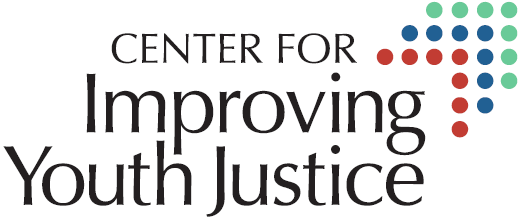Acting Administrator, Office of Juvenile Justice andDeliquency Prevention (OJJDP)nnChyrl is the first woman of color to step into the leadership position at the Office of Juvenile Justice and Delinquency Prevention and brings with her decades of experience creating opportunities for young people to realize their potential and determination to make positive change.nChyrl Jones was born in Georgia and spent most of her childhood in Delaware because her father was in the Air Force. “My father is the most influential person for me; he is such a great role model. When he started serving in the Air Force as a young man, he was able to travel the world but also faced significant racism in the service and in our country ― but he never let that deter him from his goals. He has a calm yet strong presence, a sense of a purpose and is easy going at the same time.” Chryl’s colleagues describe her similarly: strong, passionate, easy going, humble and bringing a smile to both easy and challenging conversations.nAfter the family moved to Maryland in her teenage years, Chyrl went on to study at the University of the District of Columbia where she completed her Bachelor of Arts degree in Cultural Anthropology. Her early adult working life always had some focus on children and youth ― she worked on maternal and child health issues at the National Governors Association and on environmental health concerns at the University of Maryland. She started focusing solely on juvenile justice when she joined the Office of Juvenile Justice and Delinquency Prevention (OJJDP) in 1998. Her inspiration to work with youths came when she worked with city high school students in Baltimore. “I was working on an environmental justice project with the students but it turned into so much more. I really enjoyed introducing them to things and seeing them enjoy learning and having new experiences. That work made me want to ensure I was doing something that would positively impact young people.”nA lot has changed since Chyrl first started working at OJJDP. “When I started there was definitely a ‘good old boy’s club’ network. That’s changed to a large degree, but it was definitely a challenge to try to navigate through that ― to show your worth and be effective at getting your job done.” As a woman of color it was even harder to be perceived as a leader: “Some people don’t see you in that position of authority and you might not get the same level of respect.” Her humble advice is to “always work hard, even when no one is looking; and take initiative, it will grow your experiences.”nGreater gender equality is not the only positive change Chyrl has seen over the years. “There has been a downward trend of locking up kids. Before, things were more punitive, you locked young people up for anything. Now we are asking: ‘What happened to the child?’ That’s an important part of the conversation.” She also strongly believes that youths themselves need to be part of the conversation. “We think we know what is good for them but we need to listen more to them about what they think they need. We need youth programs that matter to youths, that engage them in meaningful ways and involve their input.” And sometimes the simplest things make a difference, she says, like: “Just having an adult say they care about them.”nChyrl wants to make sure youths in juvenile justice have access to the services they need, especially education. “Education in the correctional setting is something that needs to be value-added. We have a lot of talented youth out there that don’t fit into the regular structure of your classroom setting; that’s not how they thrive. We need to figure that out, how to work with them.” Because as she points out, once the kids start to realize their potential, value and worth, they will have the foundation they need to realize that the sky is the limit.nToday, more than 20 years later, Chyrl is at the top of the OJJDP ladder as acting administrator. With a budget of $390 million for the fiscal year of 2021, she oversees all of OJJDP’s programs and initiatives including mentoring, tribal youth, gang prevention, Internet crimes against children, missing and exploited children, child advocacy centers, drug courts, reentry and formula grant programs, as well as training and technical assistance, communications and budgeting activities. Moving up the ladder required some self-advocacy, although Chyrl admits she finds this challenging herself ― but necessary for all women especially. “Society sometimes teaches us as young girls and women to be quiet. You’re not taught to advocate for yourself and toot your own horn.” She is part of a movement encouraging change to that mindset and narrative. “You can still be humble and the best advocate for yourself. It’s ok to do that for yourself.” Overcoming the challenges have been worth it, because it shows the younger generation what’s possible for women and women of color. “They need so see people in these positions ― that’s part of our responsibility as leaders as well as creating opportunities for them to have leadership roles.”nIt makes sense that Chyrl’s favorite quote is Bruce Lee’s “Be like water.” Like his metaphor, she believes in adapting to situations, growing and changing and learning through other people. “I think you can always learn something from anybody, whoever you come into contact with. I try to take nuggets from people that I come into contact with. It doesn’t matter their role or title. No matter who they are there is always something to be learned from them and their experiences.” What is clear is that we have a lot to learn from Chyrl.
